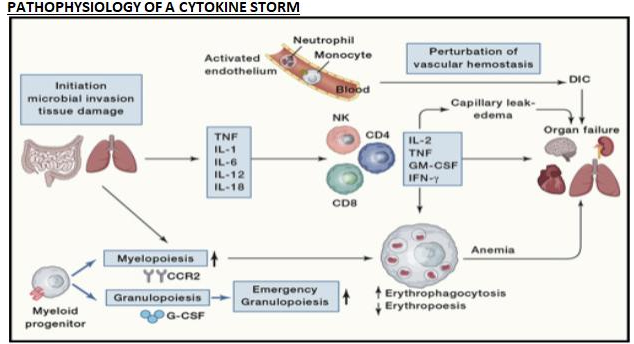
Introduction
Coronavirus disease 2019 (COVID-19) is a global pandemic caused by severe acute respiratory syndrome coronavirus 2 (SARS-CoV-2). National capital Delhi and financial capital Mumbai account for 40 per cent of the total number of deaths reported in India. The number of recoveries continues to be more than the number of active cases in India. As the number of individuals infected with COVID-19 continues to rise in India, it is clear that the routine laboratory investigations play an essential role in this crisis, contributing to patient monitoring/ treatment, as well as prognostication.
COVID-19 infection is accompanied by an aggressive inflammatory response with the release of a large amount of pro-inflammatory cytokines in an event known as “Cytokine storm.” The host immune response to the SARS-CoV-2 virus is hyperactive resulting in an excessive inflammatory reaction. Several studies analyzing cytokine profiles from COVID-19 patients suggested that the cytokine storm correlated directly with lung injury, multi-organ failure, and unfavorable prognosis of severe COVID-19.
Cytokines are an essential part of the inflammatory process. Cytokines are produced by several immune cells including the innate macrophages, dendritic cells, natural killer cells and the adaptive T and B lymphocytes. Three of the most important pro-inflammatory cytokines of the innate immune response are IL-1, TNF- α, and IL-6. Tissue macrophages, mast cells, endothelial, and epithelial cells are the major source of these cytokines during innate immune response.
This increase in cytokines results in influx of various immune cells such as macrophages, neutrophils, and T cells from the circulation into the site of infection with destructive effects on human tissue resulting from destabilization of endothelial cell to cell interactions, damage of vascular barrier, capillary damage, diffuse alveolar damage, multiorgan failure, and ultimately death.
Cytokine storm appears to be one of the common causes of mortality in the recently declared pandemic of COVID-19. Therapeutic approaches to manage the COVID-19 cytokine storm might provide an avenue to decrease the COVID-19 associated morbidity and mortality.
Hence, these markers play an essential role in patient admission protocol, assessment of staging of disease according to severity, prognostication, patient monitoring and therapeutic guide.
